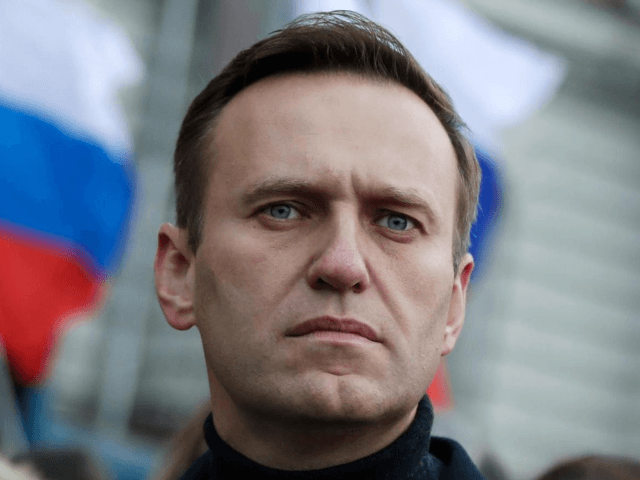Russian police announced on Friday they have been investigating opposition leader Alexei Navalny’s poising, officials established a detailed “timeline of events” up to his collapse, and Moscow wants to send investigators to Berlin to work on the case.
The Kremlin’s often-repeated position on the German-alleged poisoning of Navalny had been that it would not investigate the attack because it had no evidence a criminal assault occurred.
Navalny is currently receiving treatment — and protection — at the Charite hospital in Berlin. He became violently ill aboard a flight from Siberia to Moscow, was initially treated at a hospital in Siberia, and was soon airlifted to Germany with the assistance of a non-governmental organization.
Reuters reported on Friday that the transportation department of the Russian Interior Ministry has supposedly asked Germany to cooperate with police investigators who will be sent to Berlin now that Navalny is awake and able to answer questions:
“This request will include an application for the possible presence of Russian internal affairs investigators… and a Russian specialist when German colleagues are conducting investigations with Navalny, doctors, and experts,” the ministry said in a statement.
[…]
The Russian interior ministry said transport police in Tomsk had established a timeline of events leading up to Navalny’s illness. The ministry listed a hotel, restaurant, flat, and coffee shop Navalny had visited, and said he had drunk wine and an alcoholic cocktail. In the days after he fell ill, Navalny’s spokeswoman denied allegations he had consumed alcohol.
The Russian ministry said police had interviewed five of six people it said accompanied Navalny when he fell ill.
A spokesman for the German government responded that no such Russian request to send investigators to Berlin has been made.
Kremlin spokesman Dmitry Peskov stated that his government is still resisting foreign demands for a full criminal investigation and still has not seen any compelling evidence that Navalny was the victim of a deliberate poisoning.
“Of course, we do not like it when other countries dictate to us what legal procedures we have at what point and on what basis to start them,” Peskov said, claiming that “legally, it is not possible” to launch a criminal probe based on “analysis by a German laboratory” and Germany’s “groundless” accusations that Navalny was poisoned with Novichok, a Russian-developed nerve agent.
The implication of these comments is that the Russian Interior Ministry’s investigation is not a criminal case, or could be a deliberate effort to discredit the possibility of a criminal assault.
Peskov added there are currently no plans for Russian President Vladimir Putin to discuss the Navalny case with German Chancellor Angela Merkel.
Germany’s Der Spiegel quoted German foreign intelligence chief Bruno Kahl telling a “secret meeting” of unnamed officials that the poison used against Navalny was “harder” than the Novichok used against former Russian spy Sergei Skripal in the United Kingdom in 2018. Kahl’s agency refused to comment on the report.
Der Spiegel also said a delegation from the Organization for the Prevention of Chemical Weapons (OPCW) visited Navalny’s hospital in Berlin last weekend.

COMMENTS
Please let us know if you're having issues with commenting.